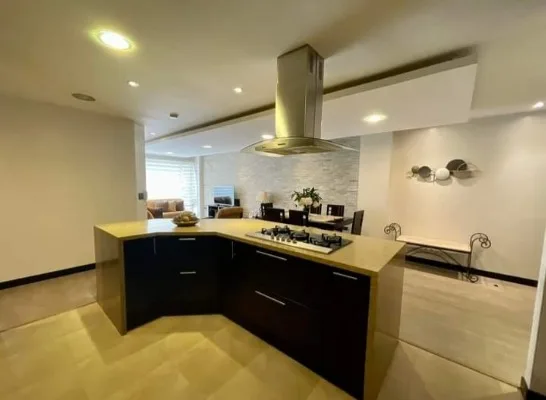Discovering a life worth living in Ecuador: Observations of a Tea Party member and oil company automation engineer
By Ed Konderla
Author’s disclaimer: Let me apologize up front to any friends and acquaintances I piss off by writing this article.
My wife and I first came to Ecuador in November of 1997 as part of a large ARCO oil and gas petroleum project. We had lived and worked in Hong Kong for the previous two-and-a-half years.
 The Ecuador you see today, with its incredible people, over-the-top environmental wonders, and beautiful architecture is basically the same place we discovered when we first came here. However, the new infrastructure with the modern highways, well-equipped police forces, modern shopping centers, and readily available hot water was definitely not the case 20 years ago. The new roads make travel many times faster than it was in 1997, plus your kidneys and spine aren’t beaten to a bloody pulp when you arrive at your destination.
The Ecuador you see today, with its incredible people, over-the-top environmental wonders, and beautiful architecture is basically the same place we discovered when we first came here. However, the new infrastructure with the modern highways, well-equipped police forces, modern shopping centers, and readily available hot water was definitely not the case 20 years ago. The new roads make travel many times faster than it was in 1997, plus your kidneys and spine aren’t beaten to a bloody pulp when you arrive at your destination.
As with any leader, you can find a lot of things to fault with Rafael Correa; the criticism comes with the job. However, in my mind, he has had a truly amazing and positive impact on this country.
When we left Ecuador in November of 1999, the country was in the depths of terrible economic upheaval. When we arrived two years earlier, the exchange rate was 3,200 Sucres to the dollar. When we left, it was 25,000. When the government made the dollar its official currency, people lost their life’s savings and basic public services were in a shambles. The fact that the country has recovered from that disaster is testament to the resiliency of the Ecuadorian people.

The million dollar view is free.
Even after we returned to Texas, my wife and I maintained our love for Ecuador and continued to visit the country every few years, one time bringing friends with us. On one occasion, my wife, who had become a Spanish teacher in Texas after studying the language here, brought four of her students, along with their moms, for a two-week visit of Ecuador.
In 2009, we made the decision to move here permanently. We purchased an apartment in the Palermo Building on Ordone\\
ed and moved in June of 2010. In 2013, we purchased a small farm, 6.5 hectares near a small village forty miles from Cuenca. The farm had a very small, unfinished cinder block cabin, potable water but no electricity and no bathroom facilities, so one of my first projects was building an outhouse. Our original intent was to use the farm as a weekend get-away from the hustle and bustle of Cuenca.
One of the things that happens when you purchase property in a small Ecuadorian community is that you become a member of that community, assuming duties like attending water board and community meetings, and working on roads and other infrastructure that fall under the responsibility of the community.
The memory of our first water board meeting is still fresh in my mind. It was pouring down rain, foggy, cold and windy. When my wife and I got to the dirt-floor community house, we found about 10 dogs sitting outside, patiently waiting for their owners. Also outside, were several horses, all saddled up and waiting. We probably were the only ones to arrive by car.
Once inside the little coarsely built brick building, we were met with about 30 smiling, curious faces. We were the first gringos to ever be part of this community. Quite frankly, it was a little overwhelming to me at first. I never felt more out of place anywhere or anytime in my life — kind of like the whore in church or the only white guy in a black bar.
Now, here we are three-and-a-half years later. We’ve built a small earthbag house on the property, complete with indoor plumbing. We got hooked up to electricity about four months ago. We have great internet. My wife is the secretary of the water board and we are the God parents of the little girl of one of our neighbors. Our 3-bedroom, 2-bath apartment in the Palermo sits empty about 25 days out of the month. I find that I’m good in Cuenca for about 24 hours, then I’m ready to get back to the country.
Our neighbors visit us on a regular basis and we go to their homes for dinner from time to time. We attend all of the community fiestas in Molino, and the feeling of strangeness has been replaced by a feeling of home and community. I lend my tools to the neighbors and they always bring them back. My wife teaches neighbor girls how to crochet and how to make pizza.
Being a results-oriented kind of guy I’ve learned to watch these people with amazement. I’ve never been around people that are so quick to smile and laugh. On community work days, known as mingas, I work with 75- to 80-year-old men and women who labor at a pace that would kill the average American teen ager.
On a daily basis, I see tiny little girls swinging razor-sharp hand scythes, cutting grass to feed their family guinea pigs. As you come around a bend on our dirt road, you’ll see a nine-year-old boy or girl tugging a 1,500-pound bull or herding a dozen cows or riding a horse into town.
The homes here are very small and poor by North American standards, but when you go for a meal they are always full of happy laughing family and friends.
By contrast, when I attend gringo gatherings, a large part of the conversation is complaints about what we don’t have and should have, how much we need to protect the environment but, in the same breath, about the next must-see destination in Europe people are jetting off to, or what costly upgrades folks are making to their apartment or house. The gringos also talk about how much they want to get to know and interact with Ecuadorians, but they buy and build apartments and houses that the average Ecuadorian would feel uncomfortable entering (but many of the gringos know they will never invite them for fear that the locals will steal their stuff). I also hear the gringos talk about how important it is to provide a good education for Ecuadorian children and bring them up from poverty but, a moment later, they talk about about how absolutely screwed up their own children and grand children are back home, and what number spouse they are presently on.
My point is this. I’ve learned to be truly thankful to have the opportunity to live in Ecuador. I am truly thankful to have the opportunity to see that hard work and being part of a community still have real value. I have had the opportunity to struggle with being so far out of my comfort zone that I can’t even see it from here. I have the satisfaction of living in a $35,000, 1,100-square-foot earthen house with earthen plaster walls and earthen floors that two neighbors helped me build (the million-dollar view is thrown in for free). I know the satisfaction of having my neighbors over to my house and know that they are comfortable being here. I also know the pleasure of having a relaxed, great night’s sleep, night after night, which before was a once-a-year event for me. Also it is wonderful being somewhere that gray hair is considered an attribute. I have learned to be thankful for the material things I have and take deep satisfaction from using those things to help other people. I have also learned that having material things is not a prerequisite to peace and happiness and that it’s usually, in fact, a hindrance.
In the final analysis, my advice to expats is this. Before continuing your gringo pursuit of the “keeping up with the Joneses” life style, stop and take a hard look around you. Stop and listen, really listen, and not just to those pushing the gringo expat culture that probably surrounds you.
I’m not saying the local culture is perfect, but I am saying there is a tremendous amount to be learned from it. On the other hand, if you continue on the route that prompts you to brag about your big condo or house, all the beautiful things you have, about your cheap maid and the fact that your low-price life style allows you to eat out all of the time, I will guarantee you will have locked yourself out of the opportunity to experience the truly valuable and life-changing side of life that Ecuador offers. In my mind they are almost mutually exclusive.
Worst of all, the inability of many expats to abandon the old materialistic life style leaves them financially broke and horribly disillusioned. By the time they figure out that “keeping up with Joneses” is a hollow, empty life, it’s too late, and they return to the U.S. to live out their years in impoverished bitterness.
















